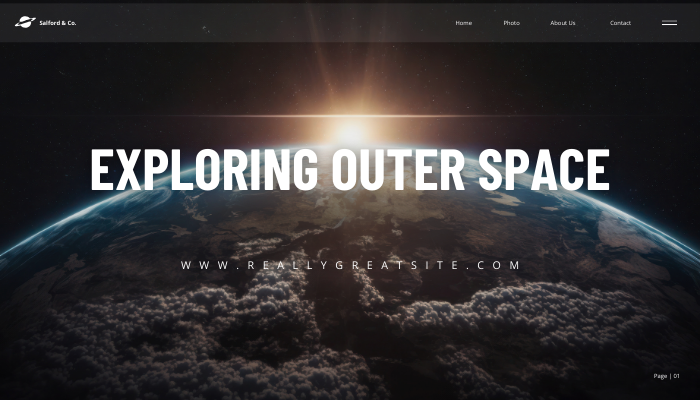For millennia, human imagination has been intrigued by space exploration, pushing us to push the boundaries of what is possible. More than just a matter of curiosity, the desire to leave Earth’s atmosphere behind has enormous promise for the future of humanity. The benefits of space exploration are numerous and go well beyond our globe, ranging from the technological advances that come from space missions to the potential for finding new worlds. We shall examine the significance of space exploration, its difficulties, and its enormous effects on science, society, and humankind’s destiny in this essay.
1. Space Exploration Is Important
Space exploration is an important undertaking for a number of reasons. It mostly fulfills humankind’s intrinsic curiosity and drive to comprehend the cosmos. Through the study of celestial bodies, space phenomena, and far-off galaxies, we can learn more about the nature of matter, the beginnings of the universe, and the possibility of extraterrestrial life.
Furthermore, space exploration is essential to the advancement of science and technology. Innovative solutions are needed to meet the challenges of space missions, and these ideas will help many different businesses here on Earth. For instance, advances in computer technology, materials science, and engineering have been fueled by the construction of satellites, spacecraft, and space probes.
Furthermore, space exploration will have a big impact on humankind’s future. As issues like resource depletion and overpopulation plague our globe.
2. Technological Developments Resulting from Space Travel
The progress of technology as a result of space missions is one of the most obvious benefits of space exploration. Innovations in a number of disciplines, including propulsion, materials science, communication, and life support systems, are needed to meet the challenges of space flight. The quality of life on Earth has increased thanks to the uses of several of these technologies in daily life.
For example, satellite technology, which was first created for space exploration, is now essential to weather forecasting, worldwide communication, and navigation. Relying on a constellation of satellites, the Global Positioning System (GPS) has transformed disaster relief, transportation, and agriculture. Similar to this, medical imaging devices have been developed as a result of advances in imaging technology, which were prompted by the need to obtain detailed photos of far-off celestial entities.
3. The Economic Effects of Space Travel
Space exploration has a huge economic impact, boosting growth across a number of industries and generating well-paying jobs. Government organizations like NASA and the European Space Agency (ESA) used to dominate the space industry, but now private businesses like SpaceX, Blue Origin, and Virgin Galactic are involved. Increased investment, innovation, and competitiveness have resulted from this change in the space industry.
From asteroid mining and space-based research to satellite manufacturing and space tourism, the commercialization of space has created new business prospects. These sectors have the capacity to produce billions of dollars in income and thousands of employment in manufacturing, services, and engineering, among other professions.
Additionally, space exploration promotes the creation of spin-off technology.
4. The Difficulties of Space Travel
Although space exploration has many advantages, there are drawbacks to the project. Significant resources are needed for space missions, including cash outlay, cutting-edge equipment, and qualified labor. Extreme temperatures, radiation, and microgravity seen in space present extra difficulties for the development and maintenance of life support systems and spacecraft.
The expense of space exploration is one of the biggest obstacles. Spacecraft development, launch, and operation are costly endeavors that frequently require billion-dollar missions. Although previously these expenses have been borne primarily by government space agencies, the emergence of private industry has brought new funding options, including as partnerships, commercial ventures, and public-private collaborations. But the hefty price of space exploration doesn’t go away.
5. Space Exploration’s Future
Space exploration has a bright future ahead of it, filled with many fascinating projects and missions. The potential for space exploration grows as technology develops, creating new avenues for research and creativity.
The arrival of humans on the Moon is one of the space exploration milestones most looking forward to. The objective of NASA’s Artemis program is to put humans on the moon by 2024 in order to establish a long-term human presence there. This mission will provide important experience and information for long-duration space flight, and it will act as a springboard for missions to Mars and beyond in the future.
Another primary target for upcoming space exploration is Mars. Together with other space agencies and commercial.
In summary
The voyage of space exploration has great potential for the future of humanity. Beyond Earth, space exploration has a great deal to offer in terms of advancing science, technology, and economic expansion. Even though space exploration has many obstacles, the prospective benefits make it a worthwhile endeavor. Space exploration will become more and more significant in determining the course of our planet and our place in the cosmos as long as we keep pushing the envelope of what is conceivable.
